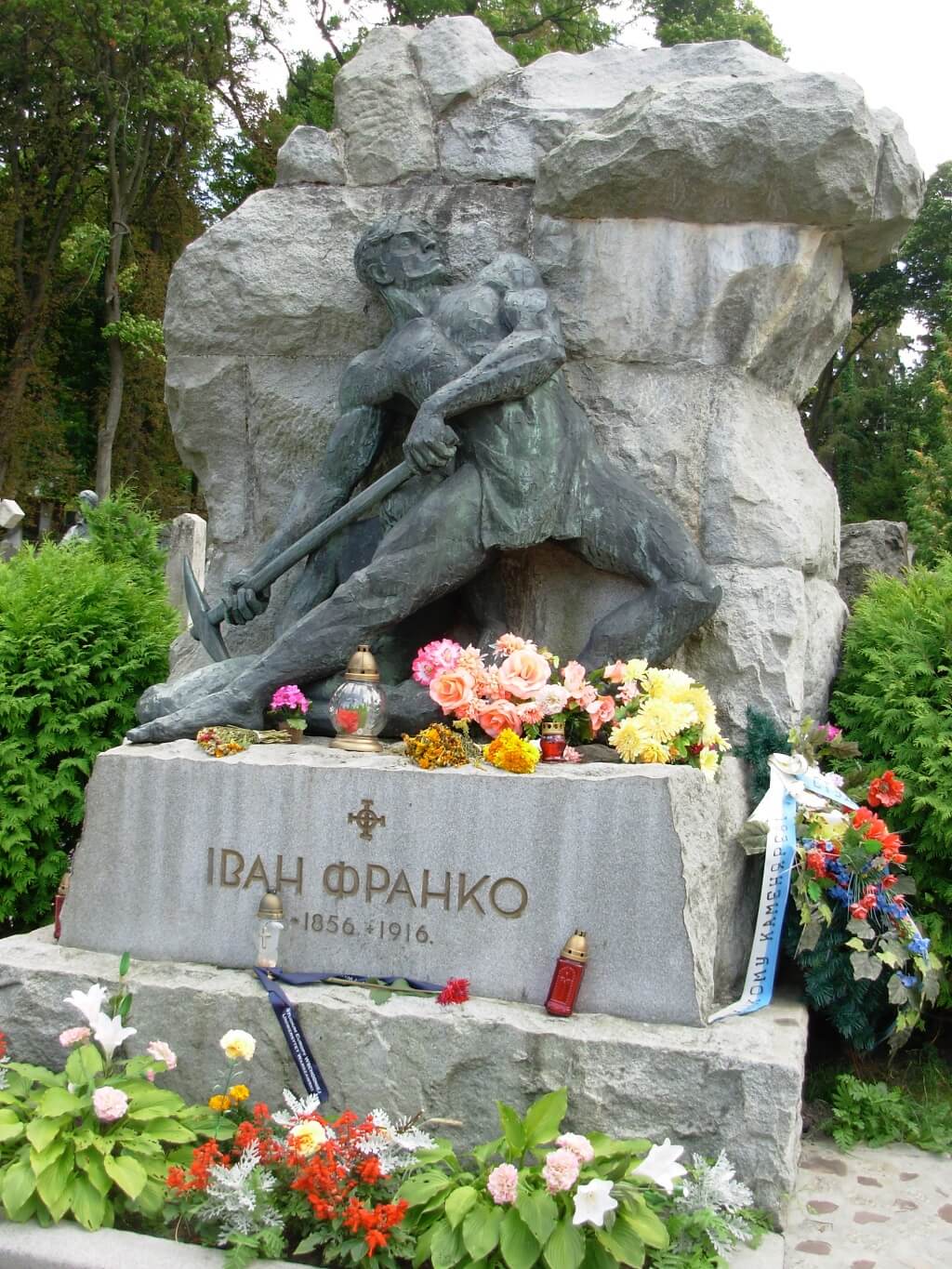Gord Yakimow for New Pathway – Ukrainian News.
“I speak five languages,” the young man said to me in Ukrainian: “Russian, Polish, German, Slovakian. But I never let on. It is important to know the language of the enemy.”
My wife and I had landed in L’viv, Western Ukraine, earlier that day, after a long and exhausting flight from Toronto on a Polish airline which had first made a short stop and plane-switch in Warsaw. She, of Anglo-Saxon heritage, went straight to bed. But I ventured out and wandered the streets, for this was my first visit to the land of my father. It was a warm August evening on the eve of the anniversary of Ukraine’s Independence Day, and the city was abuzz with nationalistic pride and exuberance.
The statues around the main square were garbed in embroidered coverings (rushnykeh). Young folks walked about in their embroidered shirts and blouses (vyshyvanka). The trehzyb (trident – Ukraine’s national emblem) and the prahpor (Ukraine’s blue and yellow flag) were everywhere. Dance troupes performed through the evening. Musicians with their tsymbaly and banduras made music on many of the street corners in the centre of the city. Choirs sang.
L’viv, a UNECSO World Heritage site, is an astonishingly beautiful city. In the one hundred years prior to my visit, it had been ruled by five different powers: the Austro-Hungarian empire, Poland, Germany during WW II, Russia on several occasions. But no longer, for with the collapse of the Soviet Union, Ukraine since 1991 had been in control of its own destiny … but it was a fragile control.*
There is much history here, as there is in all European cities, and that history is most reflected in the unique Lychakivsky Cemetery. Here stand the often ornate headstones of those from many nationalities who had passed through L’viv, all respectfully preserved: Poles, Austrians, Lithuanians, Armenians, Germans, Jews, Russians, Ukrainians.
Here lies Ivan Franko, Ukraine’s beloved writer, scholar and philosopher, who died in poverty in L’viv in 1916. A large city in western Ukraine now bears his name: Ivano-Frankivsk.
Here lies the poet and songwriter Volodymyr Ivasyuk, who in 1979 was found dead at age 30 after having been interrogated by Soviet authorities, his works being “too Ukrainian” for their liking. His Chervona Ruta is today the most beloved of all Ukrainian songs, the equivalent of “The Fields of Athenry” to Ireland, “Waltzing Matilda” to Australia, “America the Beautiful” to the US.
Here lies Solomiya Krushelnytska, once the world’s premier opera singers, loved both for her beauty and her incomparable voice. She performed at opera houses around the world. In a special section of Lychakivsky lie graves of both Polish and Ukrainian soldiers who fought against one-another in a war following the confusion of the Russian Revolution, a war which saw Ukraine gain a short-lived (1918-1922) period of independence. As a teenager my father had fought in that war. [He would later serve with Canadian forces in WW II.]
My wife and I spent twenty-three days in Ukraine, visiting with cousins in the village where my father grew up, looking out over the “valley of death” in Crimea made famous by Tennyson’s “Charge of the Light Brigade,” wandering the hills of the Carpathian Mountains, paying respect in Kyiv at the monument to the Holodomor (the genocide of 1932-33 which resulted in the deaths by starvation of millions of Ukrainians).
We saw a lot. But the beauty of L’viv (Ukraine’s “most elegant city” according to our Brant guidebook) and the comment of a young man I met on my first night [“… I speak five languages … it is important to know the language of the enemy …”] will remain with me for the rest of my life.
*Not long after my visit, there would occur an uprising in the capital Kyiv against the corrupt policies of the Russian-leaning president Viktor Yanukovych which saw him flee to Russia, but not until after 100 “martyrs” (known to Ukrainians as “The Heavenly Hundred”) were killed in the Maidan Square; a Russian invasion and take-over of Crimea; and a war in the Donbas region of eastern Ukraine (against separatist rebels who are allegedly assisted by Russian forces which Russia denies are Russian), a war which has seen the death of 13,000 people as of this writing.
Share on Social Media




































